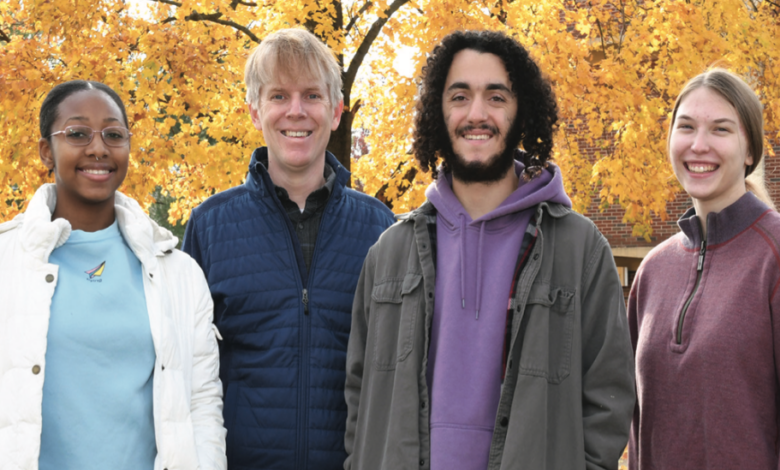
Rider professor receives grant from National Science Foundation
By Amethyst Martinez
A $93,133 grant was awarded to Rider environmental science professor and environmental scientist Daniel Druckenbrod by the National Science Foundation to fund research on his involvement in a project investigating tree rings in Southeast Asia.
For years, Druckenbrod has studied tree rings and the stories they tell about the past climate and weather patterns. This is especially timely due to the recurring issues posed by climate change.
“Our climate is changing because of human activity,” said Druckenbrod. “It’s important to understand the long-term trends of climate change. So we, as a global society, have weather records that extend back through most of the prior century. … Natural climate and human-induced climate change has been occurring for a long time and will continue for a long time, so it’s important to have records. … We use tree rings, which are sensitive to climate as indirect thermometers, if you will, or indirect rain gauges to help understand past temperature and past drought. This will be focused in Southeast Asia.”
Druckenbrod is a co-principal investigator on the research project and the principal investigator for the writing portion. However, this project is a part of a large network of scientists and universities.
“It’s a network that involves universities from Columbia University, to the University of St. Andrews in the U.K., to collaborating scientists in Australia and New Zealand, since it’s actually where this research site is focused,” said Druckenbrod.
Three students on campus will be working alongside Druckenbrod as well: junior environmental science major Stessie Chounoune, junior marine science major Robby Arpaio and sophomore environmental science major Gabby Banyaski.
Banyaski said, “I heard he [Druckenbrod] was doing this kind of project, and it sounded pretty interesting.”
Banyaski also took the research opportunity because of her interest in the climate.
“I think mostly, we’ll be helping [by] just looking at the samples and measuring and taking the measurements. … Then, as we do that, and continue on, then maybe we’ll come to some conclusions,” said Banyaski.
The grant will strengthen the research project and provide opportunities for further investigation into climate history while looking at tree rings.
“Receiving the grant from the National Science Foundation is just always an honor that fellow scientists have selected to research as worthy federal funding. It provides not only money for the equipment, but it also provides money to support students, and as well support my time over the summer working on this project,” said Druckenbrod.
Rider and Druckenbrod’s involvement with this project allowed science students to participate in real-world scientific fieldwork and research.
“Opportunities like this come because we have a geological, environmental and marine sciences department on Rider’s campus,” said Druckenbrod. “We think that the education that we give students is valuable for thinking about and hopefully solving questions like climate change.”


